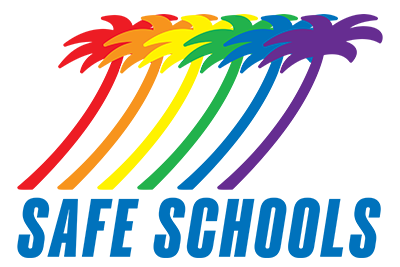HB1223 Bill
An act relating to public PreK-12 educational institution and instruction requirements; amending s.1000.21, F.S.; defining the term “sex” for the Florida Early Learning-20 Education Code; creating s.1000.071, F.S.; requiring specified policies relating to a person’s sex at such educational institutions; defining the term “sex”; prohibiting employees, contractors, and students of such educational institutions from being required to use, from providing, and from being asked to provide certain titles and pronouns; prohibiting students from being penalized or subjected to certain treatment for not providing certain titles and pronouns; authorizing the State Board of Education to adopt rules; amending s.1001.42, F.S.; prohibiting classroom instruction on sexual orientation or gender identity from occurring in prekindergarten through grade 8, rather than kindergarten through grade 3; providing requirements if such instruction is provided in grades 9 through 12; providing that such prohibition applies to charter schools; requiring school districts to post specified policies on their websites; amending s. 1002.68, F.S.; prohibiting private prekindergarten providers and public schools from providing instruction on sexual orientation or gender identity;
Section 1. Subsection (9) is added to section 1000.21,Florida Statutes, to read: 1000.21 Systemwide definitions.—As used in the Florida Early Learning-20 Education Code: “Sex” means the binary division of individuals based upon reproductive function.
Section 2. Section 1000.071, Florida Statutes, is created to read: Personal titles and pronouns.— It shall be the policy of every public K-12 educational institution that is provided or authorized by the Constitution and laws of Florida that a person’s sex is an immutable biological trait and that it is false to ascribe to a person a pronoun that does not correspond to such person’s sex. An employee, contractor, or student of a public K-12 educational institution may not be required, as a condition of employment or enrollment or participation in any program, to refer to another person using that person’s preferred personal title or pronouns if such personal title or pronouns do not correspond to that person’s sex.
An employee or contractor of a public K-12 educational institution may not provide to a student his or her preferred personal title or pronouns if such preferred personal title or pronouns do not correspond to his or her sex.
A student may not be asked by an employee or contractor of a public K-12 educational institution to provide his or her preferred personal title or pronouns or be penalized or subjected to adverse or discriminatory treatment for not providing his or her preferred personal title or pronouns. (5) The State Board of Education may adopt rules to administer this section.
Section 3. Paragraph (c) of subsection (8) of section 1001.42, Florida Statutes, is amended to read: Powers and duties of district school board.—The district school board, acting as a board, shall exercise all powers and perform all duties listed below:
STUDENT WELFARE.—In accordance with the rights of parents enumerated in ss. 1002.20 and 1014.04, adopt procedures for notifying a student’s parent if there is a change in the student’s services or monitoring related to the student’s mental, emotional, or physical health or well-being and the school’s ability to provide a safe and supportive learning environment for the student. The procedures must reinforce the fundamental right of parents to make decisions regarding the upbringing and control of their children by requiring school district personnel to encourage a student to discuss issues relating to his or her well-being with his or her parent or to facilitate discussion of the issue with the parent. The procedures may not prohibit parents from accessing any of their student’s education and health records created, maintained, or used by the school district, as required by s. 1002.22(2).
- A school district may not adopt procedures or student support forms that prohibit school district personnel from notifying a parent about his or her student’s mental, emotional, or physical health or well-being, or a change in related services or monitoring, or that encourage or have the effect of encouraging a student to withhold from a parent such information. School district personnel may not discourage or prohibit parental notification of and involvement in critical decisions affecting a student’s mental, emotional, or physical health or well-being. This subparagraph does not prohibit a school district from adopting procedures that permit school personnel to withhold such information from a parent if a reasonably prudent person would believe that disclosure would result in abuse, abandonment, or neglect, as those terms are defined in s. 39.01.
- Classroom instruction by school personnel or third parties on sexual orientation or gender identity may not occur in prekindergarten kindergarten through grade 8. If such instruction is provided in grades 9 through 12, the instruction must be 3 or in a manner that is not age-appropriate or developmentally appropriate for students in accordance with state standards. This subparagraph applies to charter schools.
- Student support services training developed or provided by a school district to school district personnel must adhere to student services guidelines, standards, and frameworks established by the Department of Education.
- At the beginning of the school year, each school district shall notify parents of each health care service offered at their student’s school and the option to withhold consent or decline any specific service in accordance with s. 1014.06. Parental consent to a health care service does not waive the parent’s right to access his or her student’s educational or health records or to be notified about a change in his or her student’s services or monitoring as provided by this paragraph.
- Before administering a student well-being questionnaire or health screening form to a student in kindergarten through grade 3, the school district must provide the questionnaire or health screening form to the parent and obtain the permission of the parent.
- Each school district shall adopt procedures for a parent to notify the principal, or his or her designee, regarding concerns under this paragraph at his or her student’s school and the process for resolving those concerns within 7 calendar days after notification by the parent.
- At a minimum, the procedures must require that within 30 days after notification by the parent that the concern remains unresolved, the school district must either resolve the concern or provide a statement of the reasons for not resolving the concern.
If a concern is not resolved by the school district, a parent may:
(I) Request the Commissioner of Education to appoint a special magistrate who is a member of The Florida Bar in good standing and who has at least 5 years’ experience in administrative law. The special magistrate shall determine facts relating to the dispute over the school district procedure or practice, consider information provided by the school district, and render a recommended decision for resolution to the State Board of Education within 30 days after receipt of the request by the parent. The State Board of Education must approve or reject the recommended decision at its next regularly scheduled meeting that is more than 7 calendar days and no more than 30 days after the date the recommended decision is transmitted. The costs of the special magistrate shall be borne by the school district. The State Board of Education shall adopt rules, including forms, necessary to implement this subparagraph.
(II) Bring an action against the school district to obtain a declaratory judgment that the school district procedure or practice violates this paragraph and seek injunctive relief. A court may award damages and shall award reasonable attorney fees and court costs to a parent who receives declaratory or injunctive relief.
- Each school district shall adopt and post on its website policies to notify parents of the procedures required under this subparagraph.
- Nothing contained in this subparagraph shall be construed to abridge or alter rights of action or remedies in equity already existing under the common law or general law.
Section 4. Subsection (8) is added to section 1002.68, Florida Statutes, to read: 1002.68 Voluntary Prekindergarten Education Program accountability. Private prekindergarten providers and public schools may not provide instruction on sexual orientation or gender identity.
Section 5. Sections 1000.05(2), (3), (4)(a), (5), and (6)(d), 1001.453(2)(c), 1002.42(3)(a), 1003.27(2)(b) and (c), 1003.42(3)(a), (c), (e), and (f), 1004.43(2), 1006.205(2)(b) and (3), 1009.23(7), 1009.24(10)(b), 1009.983(6), 1009.986(3)(e), and 1014.05(1)(c), (d), and (f), Florida Statutes, are reenacted for the purpose of incorporating the amendment made by this act to s. 1000.21, Florida Statutes, in references thereto.
Section 6. If any provision of this act or the application thereof to any person or circumstance is held invalid, the invalidity does not affect other provisions or applications of this act which can be given effect without the invalid provision or application, and to this end, the provisions of this act are severable.
Section 7. This act shall take effect July 1, 2023
Summary
- The bill focuses on public PreK-12 educational institutions and instruction requirements in Florida.
- Section 1 defines “sex” as the binary division of individuals based on reproductive function (male or female).
- Section 2 creates policies that prohibit employees, contractors, and students of public K-12 educational institutions from being required to use or provide certain titles and pronouns that do not correspond to their sex.
- Section 3 prohibits classroom instruction on sexual orientation or gender identity from prekindergarten through grade 8 and provides requirements if such instruction is provided in grades 9 through 12. It applies to charter schools and requires school districts to post specified policies on their websites.
- Section 4 prohibits private prekindergarten providers and public schools from providing instruction on sexual orientation or gender identity.
- Section 5 reenacts several sections of Florida Statutes to incorporate the amendments made by this act to s. 1000.21.
- The bill takes effect on July 1, 2023.
Anti-LGBTQ and Anti-Privacy:
- Section 2 of the bill imposes policies prohibiting using or providing certain titles and pronouns that do not correspond to a person’s sex, which can be seen as anti-LGBTQ.
- This section also allows employees or contractors of public K-12 educational institutions not to provide a student’s preferred personal title or pronouns if they do not correspond to their sex, which can be seen as anti-student right to privacy.
Imposing Rules on Private Education:
- Section 4 of the bill prohibits private prekindergarten providers and public schools from providing instruction on sexual orientation or gender identity, which can be seen as imposing rules on private education.

